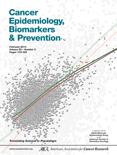
CANCER EPIDEMIOLOGY BIOMARKERS & PREVENTION
Scope & Guideline
Transforming Cancer Control Through Knowledge
Introduction
Aims and Scopes
- Cancer Epidemiology:
Research on the distribution, patterns, and determinants of cancer in populations, focusing on identifying risk factors and understanding disparities in cancer incidence and outcomes. - Biomarkers for Cancer Risk and Prognosis:
Investigation of biological markers that can indicate cancer risk, progression, and response to treatment, facilitating early detection and personalized therapy. - Prevention Strategies:
Studies aimed at developing and evaluating interventions to reduce cancer risk, including lifestyle modifications, screening practices, and public health campaigns. - Health Disparities and Equity:
Research addressing the disparities in cancer incidence and outcomes among different racial, ethnic, and socioeconomic groups, with a focus on promoting health equity in cancer care. - Genetic and Environmental Interactions:
Exploration of how genetic predispositions and environmental factors contribute to cancer risk, advancing the field of precision medicine. - Community Engagement and Research:
Emphasis on community-based participatory research to involve affected populations in the development and implementation of cancer prevention strategies.
Trending and Emerging
- Health Equity and Social Determinants of Health:
A significant increase in studies examining how social determinants and structural inequities impact cancer outcomes, emphasizing the need for inclusive health policies. - Integration of Technology in Cancer Research:
Emerging themes include the use of telehealth and digital interventions for cancer screening and management, reflecting a response to the COVID-19 pandemic and the shift towards remote healthcare. - Multi-Omics and Personalized Medicine:
There is a growing emphasis on multi-omics approaches to understand cancer biology, risk, and treatment responses, aiming to tailor prevention and treatment strategies to individuals. - Community-Based Interventions:
Research focusing on community engagement and participatory approaches to cancer prevention is on the rise, highlighting the importance of local context and community involvement in health initiatives. - Mental Health and Cancer Survivorship:
An increasing recognition of the psychological aspects of cancer care, with studies exploring the mental health needs of cancer patients and survivors, particularly in diverse populations.
Declining or Waning
- Traditional Risk Factor Studies:
There has been a noticeable decline in publications focusing solely on traditional risk factors such as smoking and alcohol use, as research increasingly shifts towards more complex interactions and multifactorial approaches. - Single-Cancer Focus Studies:
Research concentrating on individual cancer types is becoming less frequent, with a trend toward studies that address multiple cancers or integrated approaches to cancer prevention and treatment. - Basic Science Research:
Papers emphasizing purely laboratory-based research without direct clinical or epidemiological implications are less common, as the journal prioritizes translational research that informs public health practice.
Similar Journals

Colorectal Cancer
Transforming Insights into Effective TherapiesColorectal Cancer is an esteemed academic journal published by Taylor & Francis Ltd, focusing on all aspects of colorectal cancer research, diagnosis, treatment, and prevention. With an ISSN of 1758-194X and an E-ISSN of 1758-1958, this journal serves as a critical platform for publishing innovative studies, clinical trials, and meta-analyses to advance the understanding of colorectal cancer. Though not yet categorized under open access, it provides valuable insights and is committed to enhancing the visibility of research contributions within the field. The journal aims to foster collaboration and communication among researchers, clinicians, and students dedicated to improving patient outcomes and exploring novel therapeutic strategies. With its rigorous editorial standards, Colorectal Cancer plays a pivotal role in shaping future research and clinical practices, making it indispensable for professionals in oncology, gastroenterology, and related fields.
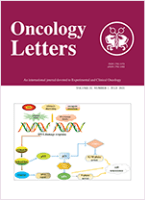
Oncology Letters
Elevating Oncology Discourse for Better Patient OutcomesOncology Letters is a prominent academic journal dedicated to disseminating high-quality research in the fields of oncology and cancer research. Published by SPANDIDOS PUBL LTD and based in Greece, this journal has established a significant presence since its inception in 2010 and continues to contribute to the scientific community with a focus on both clinical and experimental oncology. Notably, it holds a respectable Q3 ranking in the categories of Cancer Research and Oncology as of 2023, highlighting its relevance and contribution to these critical fields. With a Scopus rank of #139/404 in Medicine – Oncology and #117/230 in Biochemistry, Genetics, and Molecular Biology – Cancer Research, Oncology Letters serves as a valuable platform for researchers, professionals, and students alike to explore emerging findings and innovative treatment approaches. Though it operates within a traditional subscription model, this journal prides itself on fostering accessible and impactful discourse in oncology, making it an essential resource for those committed to advancing cancer research and improving patient care.
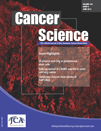
CANCER SCIENCE
Pioneering discoveries in cancer biochemistry and genetics.Cancer Science, an esteemed journal published by Wiley, stands at the forefront of oncology research, boasting an impressive impact factor and a classification in the Q1 category for its contributions in Cancer Research, Medicine, and Oncology as of 2023. Since its inception in 2003 and transitioning to an Open Access model in 2014, the journal has facilitated global dissemination of critical research findings, ensuring that vital information remains accessible to researchers, clinicians, and students alike. With its comprehensive scope covering cutting-edge discoveries in cancer biochemistry, genetics, and molecular biology, Cancer Science is recognized for its rigorous peer-review process and significant contributions to advancing our understanding of cancer. The journal, located at 111 River St, Hoboken, NJ, is an essential resource for anyone dedicated to improving treatment outcomes and pushing the boundaries of cancer research.

Tumori Journal
Empowering Oncology Through Innovative Discoveries.Tumori Journal is a distinguished publication in the field of oncology, dedicated to advancing the understanding and treatment of cancer since its inception in 1946. Published by SAGE Publications Ltd, this Italian journal serves as a pivotal platform for researchers, clinicians, and academicians to disseminate cutting-edge findings in cancer research and related areas of medicine. With an impressive record of contributions spanning multiple decades, Tumori Journal aims to foster collaboration and dialogue among professionals in the oncology community. Although classified in the Q4 category for Cancer Research and the Q3 category for both Medicine (miscellaneous) and Oncology as of 2023, the journal continues to draw interest with its rigorous peer-review process and commitment to quality. Researchers are encouraged to explore innovative methodologies and share impactful clinical insights through the journal, which also ranks within the top tiers of Scopus metrics for oncology and cancer research domains. With a growing emphasis on accessible research, Tumori Journal remains an essential resource in the continuous fight against cancer.

Cancer Communications
Bridging Knowledge Gaps in Cancer TreatmentCancer Communications, published by WILEY, is a leading open-access journal that has positioned itself at the forefront of cancer research and oncology since its inception in 2017. With an impressive HIndex reflective of its scholarly impact and recognized in the Q1 category for both Cancer Research and Oncology as of 2023, this journal consistently ranks in the top echelons of its field, specifically at Rank #16/404 and Rank #13/230 in their respective categories on Scopus. Cancer Communications aims to disseminate cutting-edge research findings, innovative methodologies, and significant advancements in cancer treatments, thereby fostering a deeper understanding of oncology among researchers, healthcare professionals, and students. The journal operates under an Open Access model since 2018, ensuring that vital research is accessible to a global audience, thus enhancing collaboration and knowledge sharing necessary to tackle one of the most pressing health challenges of our time. Located in Hoboken, NJ, United States, and with a strong commitment to scientific excellence, Cancer Communications remains an essential resource for anyone engaged in the fight against cancer.
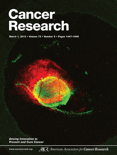
CANCER RESEARCH
Pioneering insights into cancer biology and treatment.Cancer Research, published by the American Association for Cancer Research, is a premier journal in the field of oncology, renowned for its commitment to advancing cancer research since its inception in 1941. With an impressive impact factor reflecting its vital role in the field, this journal consistently ranks in the Q1 quartile for both Cancer Research and Oncology, positioning it among the top 7.5% of journals in these categories. The journal serves as a crucial platform for researchers, professionals, and students to disseminate and gain insights into groundbreaking studies that shape our understanding of cancer biology, prevention, diagnosis, and treatment. While it is not an open-access publication, its rigorous peer-review process ensures that only high-quality research is published, thus maintaining a standard of excellence in the scientific community. With a strong legacy and an ever-expanding influence, Cancer Research continues to be essential for anyone dedicated to the fight against cancer, showcasing cutting-edge research that drives scientific discovery and innovation.

Journal of the Egyptian National Cancer Institute
Pioneering research for a world free of cancer.Journal of the Egyptian National Cancer Institute, published by SPRINGER, serves as a vital platform for disseminating innovative research in the field of oncology and cancer research. With both ISSN 1110-0362 and E-ISSN 2589-0409, this Open Access journal has been committed to making significant contributions to the scientific community since its inception in 2005. Operating from its base in Egypt, it has established itself as an important resource for researchers, practitioners, and students alike, offering insights into contemporary issues and advancements in cancer care. Recognized in the 2023 category quartiles as Q3 in Cancer Research and Q3 in Oncology, the journal is positioned to impact the ongoing discourse in cancer treatment strategies and health policy. As it continues to publish peer-reviewed articles through available Open Access avenues, the Journal of the Egyptian National Cancer Institute remains dedicated to enhancing the knowledge base and collaborative efforts within the global cancer research community.
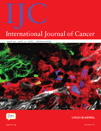
INTERNATIONAL JOURNAL OF CANCER
Advancing cancer research for a healthier tomorrow.INTERNATIONAL JOURNAL OF CANCER, published by Wiley, stands as a premier platform for the dissemination of cutting-edge research in the fields of cancer research and oncology. With an impressive impact factor reflecting its rigorous peer-review process and significant contribution to the scientific community, this journal is categorized in Q1 for both Cancer Research and Oncology as of 2023. It boasts notable rankings, being placed 38th among 404 journals in Medicine - Oncology and 32nd among 230 in Biochemistry, Genetics, and Molecular Biology - Cancer Research, positioning it within the 90th and 86th percentiles, respectively. Since its inception in 1966 and continuing to 2024, the journal has played a pivotal role in advancing our understanding of cancer biology, treatment modalities, and innovative therapeutic approaches. While it operates under a subscription model, the journal is committed to making valuable research accessible to a broader scientific audience. Researchers, professionals, and students alike will find the INTERNATIONAL JOURNAL OF CANCER an essential resource for staying abreast of the latest advancements in cancer science.
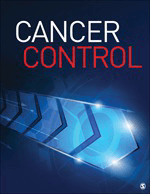
Cancer Control
Advancing knowledge in cancer prevention and treatment.Cancer Control is a prominent open-access journal published by SAGE Publications Inc, dedicated to advancing the field of oncology, hematology, and general medicine since its inception in 1995. With a focus on disseminating high-quality research, the journal contributes significantly to the knowledge base surrounding cancer prevention, treatment, and survivorship, making it a vital resource for researchers, healthcare professionals, and students alike. The journal currently holds a commendable position in the academic landscape, ranking in the Q2 category for both Hematology and Oncology, highlighting its impact and scholarly relevance. Available in an open-access format since 2018, Cancer Control ensures that critical findings are accessible to a broad audience, promoting collaboration and innovation in cancer-related research. Whether you're interested in the latest clinical trials, epidemiological studies, or public health initiatives, this journal serves as a key platform for sharing significant developments in cancer care and control.
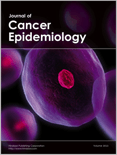
Journal of Cancer Epidemiology
Empowering research to combat cancer through data-driven insights.The Journal of Cancer Epidemiology, published by HINDAWI LTD, is a premier open access journal that has been disseminating vital research findings since 2008. With ISSN 1687-8558 and E-ISSN 1687-8566, this journal is dedicated to enhancing our understanding of cancer's epidemiological factors, thereby fostering advancements in public health, genetics, and environmental health. The journal's current quartile ranking places it in Q3 for Epidemiology and Public Health, as well as Q4 for Genetics, reflecting its growing influence in these fields. As of 2023, it holds respectable Scopus rankings, including a rank of #73 in Epidemiology, positioning it within the 51st percentile. Based in the United States with an address in London, this journal represents a crucial platform for researchers, professionals, and students eager to contribute to the global fight against cancer. For those passionate about uncovering insights into cancer risk factors and trends, the Journal of Cancer Epidemiology offers a comprehensive repository of high-quality research accessible to all.